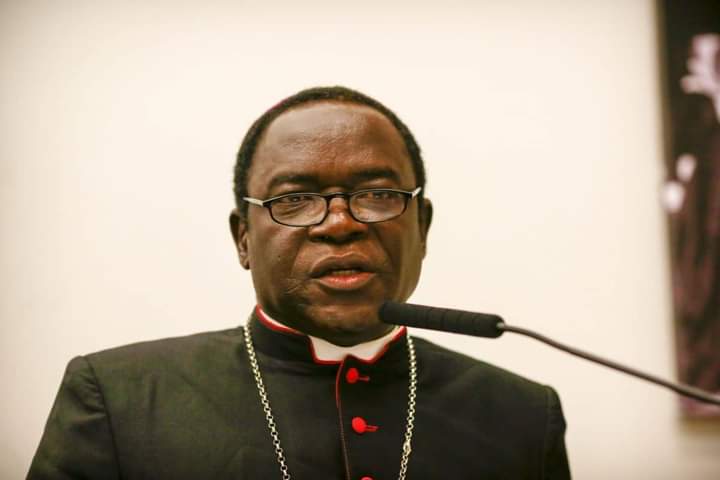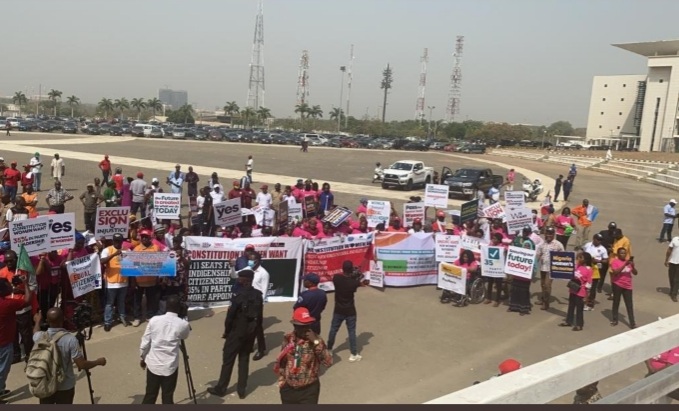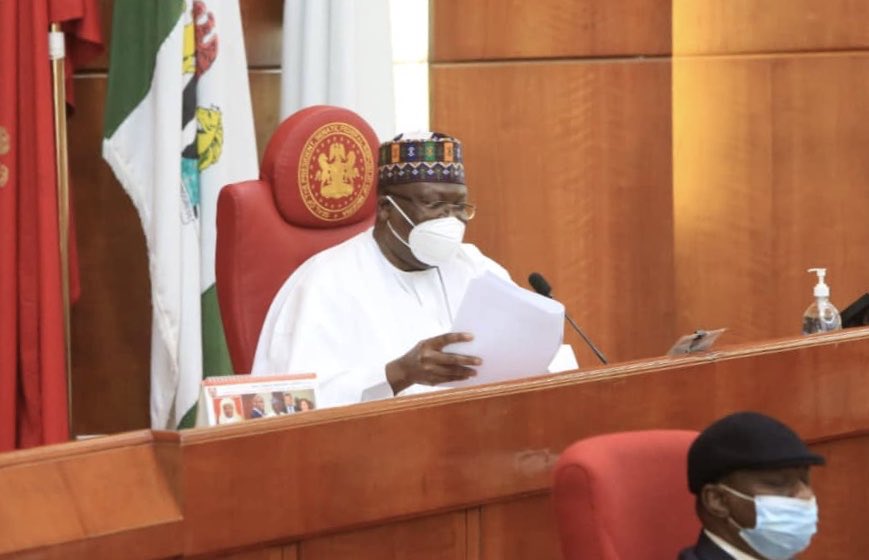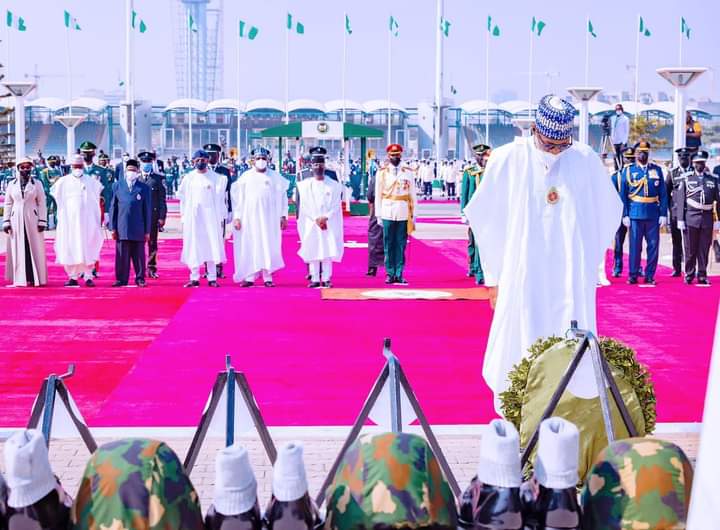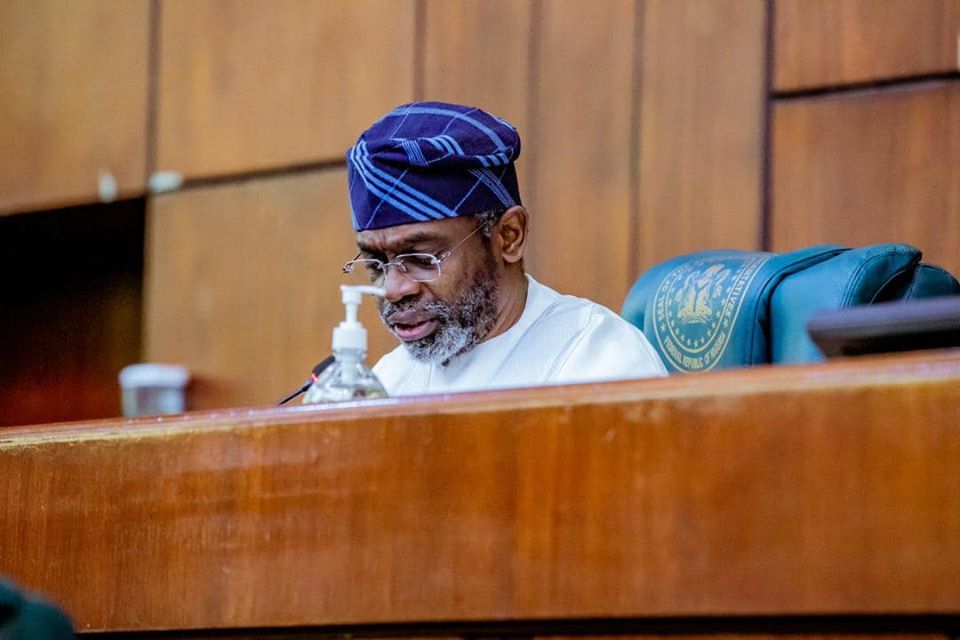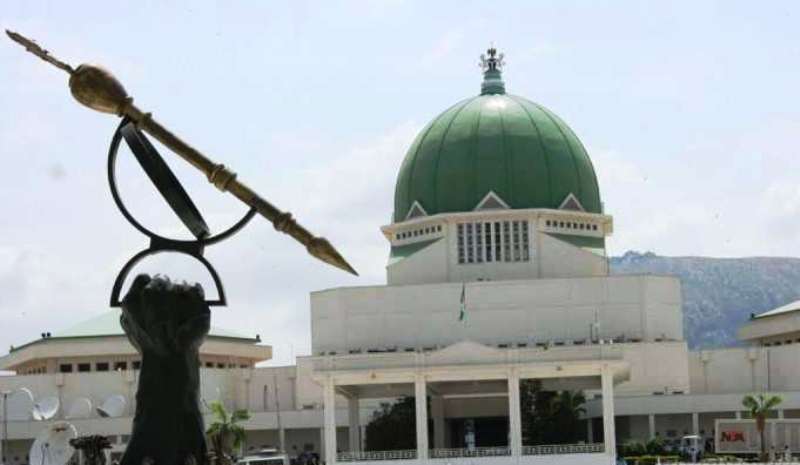By Samuel Akpobome Orovwuje
Over the last decade, countries and governments have made significant progress in mainstreaming gender, including parliamentary representation and inclusion. Regrettably, the national assembly in Nigeria is not aware of its responsibility regarding gender mainstreaming beyond the symbolic effort of ticking the box for women leaders at the political party level. The failure to meet the 35% minimum threshold for women in appointive and elective office, as spelt out in the 2006 National Gender Policy, is provokingly worrisome.
This article examines the growing tensions between Nigeria’s womenfolk and the National Assembly in part due to the rejection of five vital gender bills that address the issues of gender parity and inclusion, and it interrogates the perpetuation of patriarchy as well as the hypocritical approach to gender laws by parliamentarians. The article concludes that the under-representation of women in public space must be addressed by stakeholders in order to evolve a new nation.
The demands by the womenfolk are essentially about negotiating gender equity from international and regional human rights perspectives, particularly the Convention on the Elimination of all Forms of Discrimination Against Women (CEDAW). The bills to be altered in the constitution that were regrettably rejected by the 9th National Assembly include numbers 35, 36, 37, 38 and 68, respectively: Bill to Provide for Special Seat for Women in the National Assembly, Bill to Expand the Scope of Citizenship by Registration, Bill to Provide for Affirmative Action for Women in Political Party Administration, Bill to Provide Criteria for Qualification to be an Indigene of a State in Nigeria, and Bill to Give Women a Quota in the Federal and state executives councils or Ministerial and Commissionership Seats, respectively.
The 9th National Assembly’s rejection of these bills has raised a touchy debate on the nexus between patriarchy, identity, culture, tradition, religion and the cross-cutting issues of feminism, gender essentialism and nation-building. Gender and feminist advocacy is about more women assuming positions of influence and power. Critical stakeholders and civil society groups must create an inclusive space, initiate programmes and lobby the National Assembly to dismantle the embedded hierarchies in political institutions, state structures and the objectionable systems that continue to undervalue, dishonour and emasculate women in nation-building efforts.
Sadly, culture and negative norms of discrimination and misapplication of religious beliefs continue to bias and hinder existential policies that support women. More often than not, women’s economic contributions are under–valued and they suffer discriminatory practices, including lesser pay, in the workplace. According to a 2019 Oxfam report, unpaid work by women in Nigeria accounts for about 300 USD annually. Indeed, this is challengingly worrying and the National Assembly must revise itself by reconsidering the gender-sensitive bills.
Unmistakably, the major contests of feminism and gender advocacy go beyond obscuring women’s importance and distracting attention from their political existence; it is more about the sad impulses of sexual objectification, commodification and feminization of poverty. What is important in my view of women’s struggles is the improvement of access to national livelihood assets. Service delivery to all – including women, the elderly, the poor, people with disabilities and others excluded from the development equation – is germane to the overall wellbeing and development of the country. It is the voice and influence for mindset engineering for more public policy and leadership commitment that creates equality, equity and social inclusion.
Evidence-based statistics show that women are under-represented in many sectors. According to the British Council, 21% of women in the non-agricultural labour force (2012) and 79% of Nigeria’s rural labour force are female (Oxfam, 2019), while 1.5 million children aged 6-14 (8.1%) in Nigeria are not in school (Oxfam, 2019). The number of out-of-school children, depending on the data from UNICEF and the Nigeria Bureau of Statistics (NBS), is between 10.5 – 13.5 million. Furthermore, according to the World Economic Forum (2019), Nigeria ranked 139th out of 149 countries by the Global Gender Gap in the Political Empowerment Index.
It is instructive to note that the unpredictability in the treatment of women and girls-related bills is contrary to the spirit and letter of international human rights laws and conventions, which uphold the rights of women against discrimination. It also points to a more treacherous problem of religious and cultural hegemony. Indeed, women’s gender advocacy and protest are about rethinking existential power relations, access, opportunity and control, in line with global best practices, particularly in empowering women and closing the gap in the world of work. These are the key drivers and enablers for achieving the 2030 agenda for sustainable development.
Interestingly, supporting the girl-child and raising the boy-child to be gender aware and responsive and giving voice to victims of physical and sexual violence are critical to realising gender equality and equity. Further, the feminization of poverty, which is a negative narrative that mirrors women as wearing the face of poverty in national discourse, and profiling must be interrogated to change the language of discrimination.
Regrettably, the current 5% and 10% of women representation in parliament and the cabinet, respectively, are grossly inadequate in a situation where women account for over 45% of the voting public. Therefore, we must dismantle these hierarchies of power and invest more in women, the girl-child and the boy-child with a view to creating safer spaces that stimulate national identity and cohesion.
All things considered, the gender bills are a rare chance for the National Assembly to create gender laws fit for the 21st century. The leadership of the national assembly failed to take advantage of public solidarity and the backing of lobby groups that worked tirelessly with the women. Going forward, the National Assembly, in spite of reputational trials, should come to terms with affirmative action-driven legislation and policies that increase opportunities for the under-represented members of society. Diversity, equality, equity and social inclusion constitute the language of responsible parliamentary accomplishments not the rejection of progressive bills.
Orovwuje is Founder, Humanitarian Care for Displaced Persons, Lagos. He can be reached via Orovwuje50@gmail.com and 08034745325.

